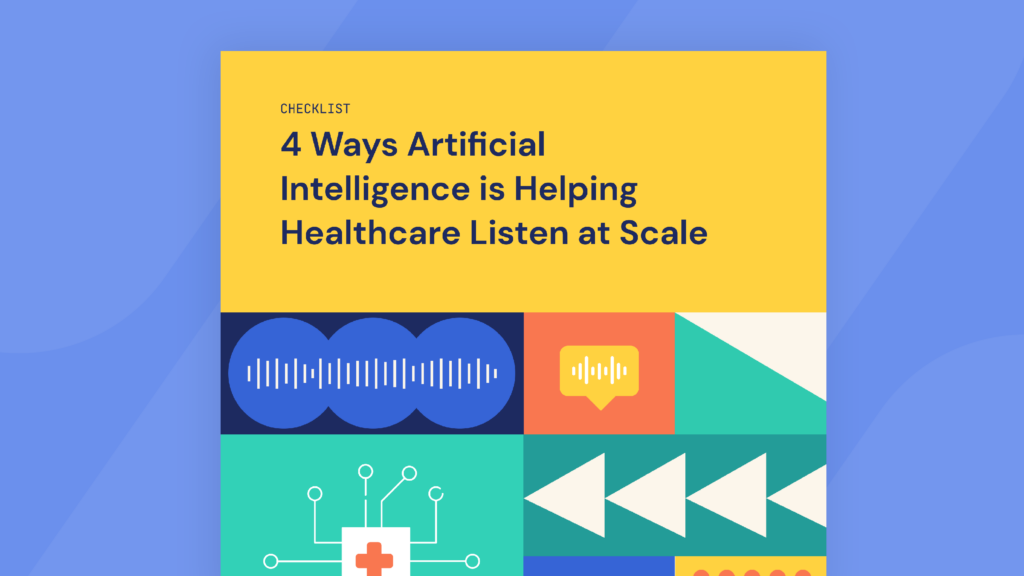
Artificial intelligence (AI) offers an enormous opportunity for organizations to invest in automations, efficiencies and, ultimately, drive positive ROI.
The buzz has not slowed and continues to grow (ChatGPT, Bard, OpenAI – anyone?) with new information and insights on how AI is going to save (or utterly destroy) humanity. In either case, there’s no denying that artificial intelligence is changing how we think about productivity, business efficiencies, and content creation – and enterprise investment in these capabilities is well underway. In a 2022 Gartner report, investment in conversational AI by contact centers was forecasted to reach $2 billion last year, while the Conversational AI market as a whole is expected to increase from $10.7B in 2023 to nearly $30B over the next five years.
Particularly, generative AI has emerged as a leading wave of new AI tools being introduced to the market. The hype and intrigue surrounding ChatGPT highlights the immense market interest in this space.
Generative AI: Industry Impact, Challenges, and Implications
Generative AI is a model in the field of AI that allows content to be created from text or voice prompts – Generative Adversarial Networks (GANs) analyze large data sets to mimic and produce content.
This type of tool has been a global phenomenon as it has been used to create new content (like audio, code, images, videos, and simulations), facilitate conversations, form product integrations, and more! You’ve undoubtedly seen examples of how this tool is drastically changing and impacting personal and professional best practices.
There’s much acclaim surrounding the value generative AI models are bringing to the industry with timesaving and efficiencies in summarizing, organizing, prioritizing, or brainstorming ideas. There’s a wealth of possibility and opportunity in generative AI application across industries and functions.
However, paired with the opportunity are many unanswered questions on ‘what’s next’ to address the challenges posed by generative AI. Additional understanding is needed to assess limitations, privacy concerns, and ongoing biases. In short: there’s a cross-industry hesitancy in the utilization of AI that emerges as a lack of trust. In a recent survey from Rackspace Technology 21% of respondents ‘strongly trust’ AI and machine learning results, while 54% have ‘only slightly’ trust.
This skepticism is important as the industry looks forward to recognize that it is the combination of AI and human ingenuity that will drive impactful results.
Many companies are sprinting to define and refine what this looks like across various functions and industries. For example, Microsoft highlights six principles that are essential to the creation of responsible and trustworthy AI into products and services: accountability, inclusiveness, reliability and safety, fairness, transparency, and privacy security.
Consider how these principles are being adapted and applied within the healthcare industry.
4 Ways to Leverage Conversational Intelligence Across Healthcare
Despite limitations and challenges, AI adoption is not slowing down. In the same Rackspace Technology survey, more than two-thirds (67%) of respondents cited plans to move forward with AI technology to improve efficiencies, predict business performance, and reduce future risk.
This motivation comes from a fundamental need for businesses to interact with the vast volumes of unstructured data organizations are ingesting every day. This type of data holds valuable insights to drive positive business outcomes. Generative AI tools are only one component in making these insights accessible in a way that’s efficient and can help support human involvement and strategy.
Conversational intelligence adoption could look like the following:
- Summarization and organization of trending conversation topics and pattern recognition
- Enhanced generalization across business verticals and use case scenarios
- Significant improvement in reliability and usefulness
- Major decrease in onboarding and ramp up time for employees
- More agile and less expertise required to pivot to meet business needs
- Improved speed-to-value
A conversational intelligence approach leverages AI tools to unlock reliable insights and tell data-backed stories to surface the right next steps. That supports organizations to:
1. Evolve customer experience interactions
AI is facilitating new channels of communication – both how we communicate and ways to monitor that communication. Generative AI, particularly, is being purposed to enable chat bots to support customer service operations. Other machine learning models are helping to structure conversations to better monitor and analyze sentiment and tone of voice to help improve customer experience. Evolving conversations is a critical tool to help eliminate friction and evolve customer experience.
2. Convert insights to action
AI is equipping organizations to listen at scale which, providing a breadth and depth of insights that unlocks intelligence to tell stories of impact with data. This merges with converting conversations to text and transcripts, robust analysis and reporting options, and a comprehensive data set to review emerging trends. This data pool of insights drives action with a higher level of accuracy and reliability due to the ‘at scale’ approach and leveraging previously underutilized sources of data. These insights are being leveraged to coach employees, improve onboarding, and to more quickly identify and address customer obstacles.
3. Improve efficiency with automation
AI is enabling enhanced efficiencies with new approaches to automation. Generative AI has been defined as an important tool for content generation and is actively being integrated into different processes and job functions (to highly publicized positive and negative effect). In the same Gartner report, they shared that while today it’s estimated about 2% of conversations are automated, by 2026 that number is anticipated to be closer to 10%. Automation, however, can also look like opportunities to help direct incoming data volumes with workflows that are support by AI tools that can handle a much higher capacity than human analysis.
4. Monitor and measure tangible goals and ROI
Outside of process improvements, investing in AI offers a tangible return on investment as a driver of revenue retention and cost reduction. This is seen in enhanced automations of analyzing larger volumes of data at scale and reducing labor costs by redirecting resources. Examples include quality assurance analysis, communication channels (such as chatbots), and providing employee coaching and feedback based on data trends. All have direct and tangible dollars associated with these processes. Gartner estimated that by 2026, conversational artificial intelligence within contact centers will reduce agent labor costs by $80 billion.

Artificial Intelligence is Helping Healthcare Listen at Scale
This checklist shares 4 ways artificial intelligence is helping healthcare listen at scale to help guide best practices to improve customer experience.
How Authenticx is Leveraging Tools Like Generative AI
Authenticx is helping organizations structure and activate conversational data by leveraging domain-specific machine learning models built specifically to serve healthcare organizations. Our methodology combines AI innovation with human ingenuity to drive highly contextual data insights to determine actionable next steps. Two of our most competitive and accurate models are a conversation summary algorithm that is a generative AI large language model (similar to ChatGPT), and the Eddy Effect, which is the only commercially available customer friction model that ties ROI to customer experience. Other models and tools address HIPAA verification, adverse events, agent quality, customer sentiment, autoscoring capabilities, and unsupervised topic identification.
The business value that these models create is paradigm-shifting and transformative in the unstructured data space. We are committed to high quality AI models that effectively analyze customer conversational data at scale for health care enterprises.
About Authenticx
Authenticx was founded to analyze and activate customer interaction data at scale. Why? We wanted to reveal transformational opportunities in healthcare. We are on a mission to help humans understand humans. With a combined 100+ years of leadership experience in pharma, payer, and healthcare organizations, we know first-hand the challenges and opportunities that our clients face because we’ve been in your shoes.
Want to learn more? Contact us!
Or connect with us on social! LinkedIn | Facebook | Twitter | Instagram | YouTube


